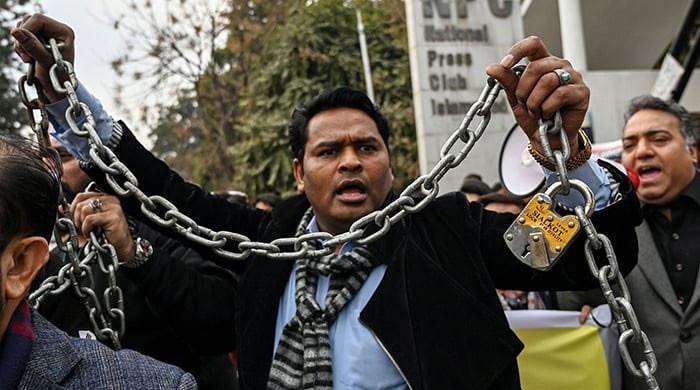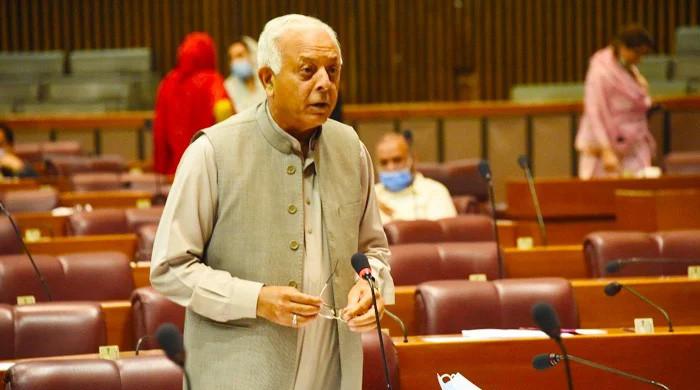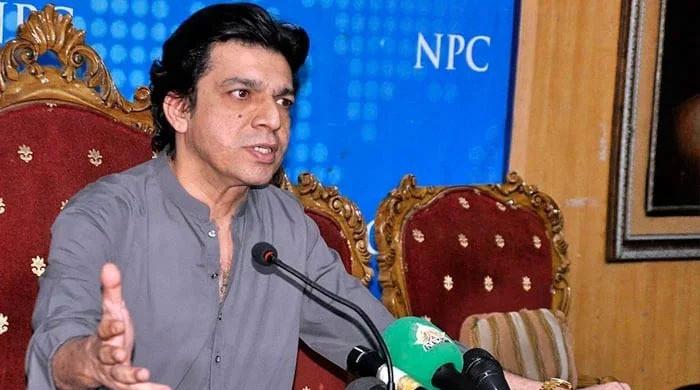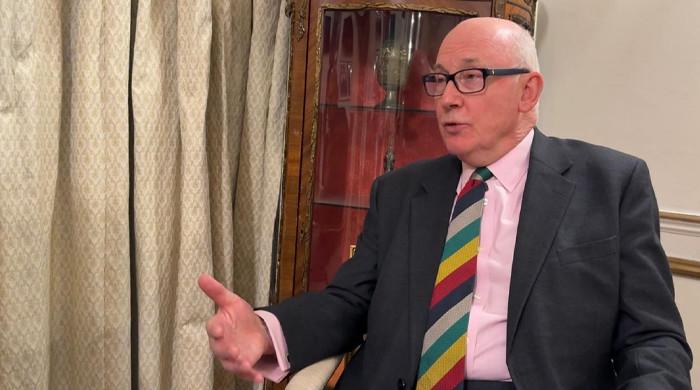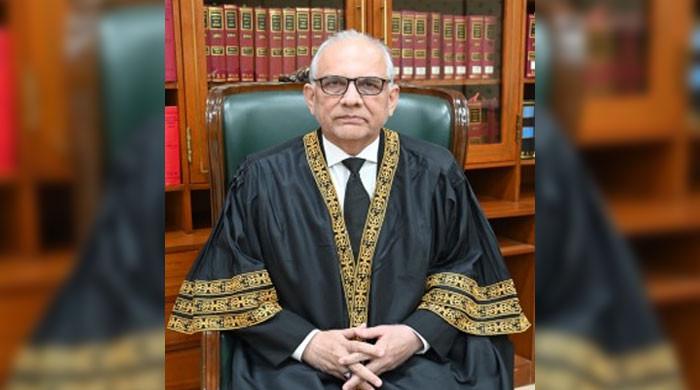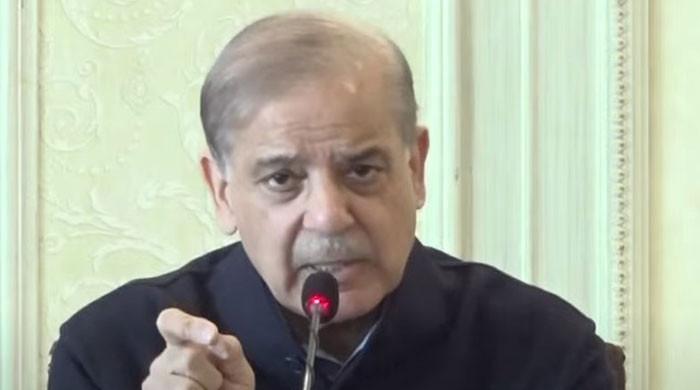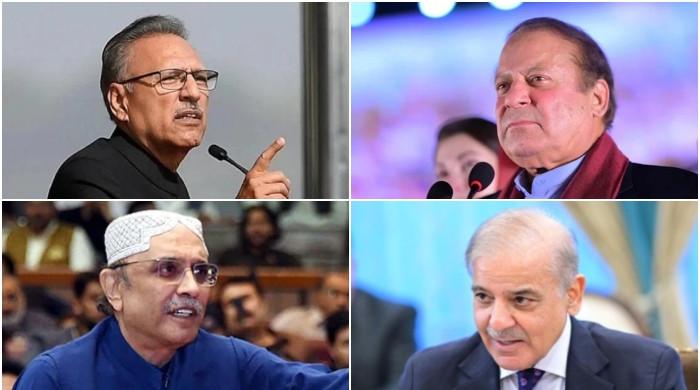Karachi hospitals reject Sindh govt’s request to reserve 20% beds for COVID-19 patients
The meeting was held to seek the private hospitals’ cooperation in the fight against the coronavirus pandemic
April 08, 2020
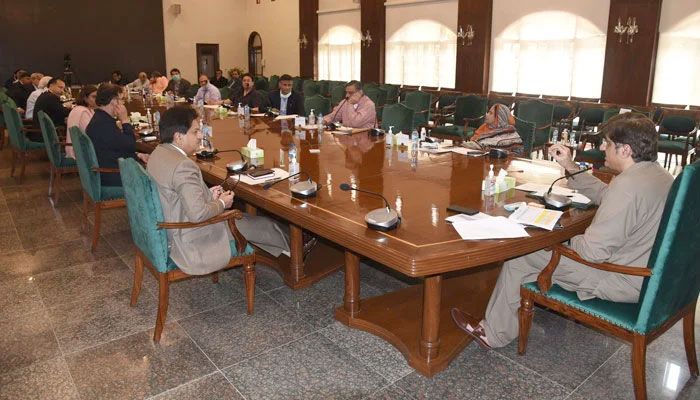
Hospitals in Karachi on Tuesday turned down Sindh government’s request to allocate 20% of beds for coronavirus patients at leading private health facilities in the metropolis, a report published in The News said.
In a meeting with Sindh Chief Minister Murad Ali Shah, The Private Hospitals and Clinics Association suggested that the provincial authorities should reserve some public tertiary-care hospitals completely as isolation and treatment centres for such patients.
Citing the unavailability of authentic testing kits for diagnosing coronavirus, an acute shortage of personal protective equipment (PPE), an inadequate number of ventilators and the absence of experimental drugs, the association members and some other private medical institutions suggested that the provincial government should prepare critical care units at its field isolation centre at the Expo Center Karachi, for which they were ready to provide ventilators as well as doctors and paramedics to the health department.
Read also: Sindh lockdown rules to be relaxed after April 14: Saeed Ghani
The meeting was held to seek the private hospitals’ cooperation in the fight against the coronavirus pandemic and to discuss as to how the hospitals and health facilities could share the burden of the government in dealing with the confirmed cases of coronavirus.
The meeting was attended by Dr Abdul Bari, CEO Indus Hospital, Rehan Baloch, EOC Coordinator, Dr Asim Hussain of Ziauddin Hospital, Dr Syed Junaid Shah of A.O. Clinic, Dr Saadia Virk of South City Hospital, Dr Umer Jang of the NMC, Dr Bilal Faiz, CEO Creek General Hospital, Dr Farhan Essa Abdullah, CEO Essa Laboratory, Dr Tahir Yousuf of Tahir Medical Center, Manhaj Qudwai, CEO Health Care Commission, Jawad Amin Khan, commissioner of the SHCC, Dr Ali Imam of Imam Clinic, Ali Farhan of Darul Sehat, Dr Salman Fareedi of the LNH, Zerkais Ankleseria of Ankle Saria Hospital, Brig Dr Waqar of Memon Medical Institute, Dr Mazhar Nizam of Patel Hospital, Commodore Kamran Khan, AKU, Dr Sadiq Ansari and others.
Officials attending the meeting told The News that despite the government’s offer that it would bear the burden of coronavirus patients, who would be referred to the private hospitals for treatment, private hospital owners refused to allocate 20 per cent beds (10 per cent for isolation and 10 per cent for treatment), and presented “scores of excuses”, including the unavailability of testing kits and PPE.
The owners recommended the government to reserve some public hospitals with hundreds of beds for patients and equip them with machinery and human resources.
When CM Murad pointed out that some private hospitals, including the Indus Hospital Karachi, and the Aga Khan University Hospital were cooperating with the government, the association members argued that these health facilities were cooperating with the government “due to huge sums of money and grants that are being provided to them”.
Government officials who attended the meeting claimed that private hospitals were not ready to reserve their beds and resources for coronavirus patients, as this could not only endanger the lives of their staff but would also ward off their normal patients. They instead presented several other suggestions to the government.
Some of the private hospital owners claimed that they had lost millions of rupees in revenue since the coronavirus outbreak, as patients were not visiting health facilities, while OPDs were already closed. They feared that if they started keeping and treating coronavirus patients, other patients would not visit the health facilities and this would create another serious health crisis in the country.
During the meeting, it emerged that the federal government had promised to provide two hundred thousand testing kits to the Sindh government, but in the end, only 18,000 kits were provided to the government and when these kits were given to the labs, they rejected them by declaring them as “substandard kits”, and demanded of the provincial government to purchase good quality testing kits from reputable companies of the world.
‘Pressure tactics'
The Sindh Healthcare Commission, in a letter to the private hospitals, have asked to comply with the health department’s instructions and also submit daily reports of COVID-19 patients’ to both the health department and to commission.
“The Sindh Healthcare Commission’s letter is a bid to put pressure on private hospitals. We have told the chief minister that private health sector shares 70 per cent of health’s burden and it would be unwise to deprive patients other than those infected with coronavirus of treatment or to endanger their lives,” the chief executive of a leading private hospital told The News after the meeting.
‘Tighten lockdown’
During the meeting, the owners and chief executives of the private hospitals, however, urged the chief minister Syed Murad Ali Shah to extend the lockdown after April 14 and implement it in letter and spirit, fearing that otherwise the spread of the viral ailment could not be controlled.
According to an official handout from the CM House, the chief minister told the participants of the meeting that he wanted their support, cooperation and guidance to fight coronavirus. “This is why, I have bothered you here,” he said.
All the doctors lauded the efforts and prompt action of the chief minister and said that had he not taken timely measures the situation would have been out of control. The owners urged the chief minister not to ease the lockdown after April 14. If the lockdown was withdrawn or eased, the virus would spread like a fire in the jungle, they said and added: “A large population of the city is slum dwellers -- they live in small houses with large families, travel in buses in crowds.”
The association added that if such kind of crowding was allowed, people would get infected in buses and on the streets and would take the virus back to their home and get their family members and localities infected.
The chief minister said that he would consult with his cabinet and other stakeholders on the issue.
All the CEOs and owners of the private hospitals assured the chief minister that they would provide him equipment, manpower, technical and expert support whenever the provincial government would be in need.
The chief minister formed a committee headed by Health Minister Dr Azra Pechuho with Dr Asim Hussain, Dr Sadia and others as members to work out plan, and requirements and arrangements to tackle the situation.




